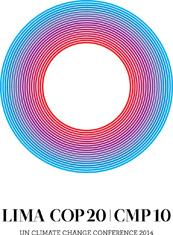The UN Climate Change Conference (COP20) in Lima, Peru (1-12 December 2014) will settle the key elements of a global climate deal to be finalised in Paris next year, when t he deadline for a new deal runs out.
he deadline for a new deal runs out.
The ESRC STEPS Centre and its partners around the world have been working on policy-relevant research in the places at the sharp edge of climate change, where it is having a huge effect on people’s lives and livelihoods. Here are a selection of resources, relevant to the COP20 negotiations, on the impact of climate change on poor and marginalised people, at the intersections of intersections of energy, agriculture, water and health.
Latin American partner:
Centro STEPS America Latina – the new Latin American regional hub for our Global Pathways to Sustainability Consortium, based at CENIT in Buenos Aires, Argentina.
Projects:
- Energy and Climate Change domain With increasing access to mod
 ern energy services a key international development priority, the STEPS Centre believes a much broader and ambitious approach to energy and development is needed.
ern energy services a key international development priority, the STEPS Centre believes a much broader and ambitious approach to energy and development is needed. - Political Ecologies of Carbon in Africa New deals and funding mechanisms aim to reduce emissions. One consequence of this is the growth of a market in carbon. This project examines the power, politics and perceptions of carbon in Africa as new schemes are planned and put into action.
 Uncertainty from Above and Below How do people deal with uncertainty about the climate? Theories, models and diagrams from “above” may have little to do with the way how everyday men and women live with, understand and cope with uncertainty. This project brings together the views of people who study uncertainty, with the perspectives of people who experience it.
Uncertainty from Above and Below How do people deal with uncertainty about the climate? Theories, models and diagrams from “above” may have little to do with the way how everyday men and women live with, understand and cope with uncertainty. This project brings together the views of people who study uncertainty, with the perspectives of people who experience it.- Pro-poor, low carbon development This project aims to improve the transfer and uptake of low carbon technologies in developing countries, and to do so in ways that can assist in their economic development.
 Environmental Change and Maize Innovations in Kenya
Environmental Change and Maize Innovations in Kenya
In East Africa, maize is an important staple crop, a vital part of food security. This project examined the various options for farmers in the region – from choosing alternative crops, to using new techniques or technology. It looked at how farmers and others see and make these choices in the context of climate change, uncertain markets and changes in land use.
- Low Carbon Innovation in China This project explores the extent, nature and social implications of low-carbon transitions in China, a key concern for the whole world.
Publications:
- Photovoice ‘Uncertainty Through the Lens’ from the Uncertainty from Below project
- Working Paper: Energy pathways in low-carbon development By Rob Byrne, Adrian Smith, Jim Watson and David Ockwell (PDF 3.96mb) How can we improve energy access while tackling climate change? This Working Paper examines the limits of using technology and finance to solve the problem, and explores a broader and more ambitious approach that addresses politics, social
- Briefing: Energy pathways in low-carbon development A short, easy-to-read briefing to accompany the Energy pathways in low-carbon development working paper. (PDF 219kb)
- Kiswahili version: Njia za Nishati katika Ustawi wenye Kaboni-Kidogo (PDF 219kb)
- Briefing: Pro-poor low carbon development project A short, non-technical briefing about this project, it’s aims, rationale and approach (PDF 297kb).
- Kiswahili version: Kuendeleza kwa kaboni pungufu kwa ajili ya jamaa zilizo maskini. Kuboresha upatikanaji wa nishati ya kaboni iliyopunguzwa, hali kadhalika, kuendeleza faida katika nchi zenye maendeleo ya chini zaidi (LDCs). (PDF 296kb)
- Book: Low-Carbon Technology Transfer From Rhetoric to Reality Edited by David G. Ockwell, Alexandra Mallett Low carbon technology transfer to developing countries has been both a lynchpin of, and a key stumbling block to a global deal on climate change. This book brings together for the first time in one place the work of some of the world’s leading contemporary researchers in this field.
- Working Paper: Community-based Micro Grids: A common property resource problem by Lorenz Gollwitze
- Article: Green grabbing: A new appropriation of Nature? By Melissa Leach, Ian Scoones, James Fairhea
- Resources collection: Green-grabs
- Special issue, Water Alternatives – Water grabbing? Focus on the (re)appropriation of finite water resources
- Working Paper: The Politics of Agricultural Carbon Finance: The Case of the Kenya Agricultural Carbon Project by Joanes O. Atela
- Working Paper: Biocharred Pathways to Sustainability? Triple Wins, Livelihoods and the Politics of Technological Promise by Melissa Leach, James Fairhead, James Fraser, Eliza Lehner
- Briefing: Biochar: “Triple Wins”, Livelihoods and Technological Promise
Recent blogposts:
- Same meat, different gravy? The new Science, Technology and Innovation Strategy for Africa (STISA) By David Ockwell
- Sustainable energy for whom? By David Ockwell and Rob Byrne
- IPCC: should climate change debates be more political? By Nathan Oxley
- Making climate change visible By Ian Scoones
When global climate change politics meets African agriculture By Joanes Atela
Key People:
- Rob Byrne, STEPS Centre energy and climate change co-convenor Video: Rob Byrne talks about the STEPS Centre’s energy and climate change research
- David Ockwell, STEPS Centre energy and climate change convenor



